What’s Your Jam? Let's Pick The Perfect Instrument For You!
Choosing the right instrument is the first step to a rewarding musical journey. This insightful blog, backed by expert guidance, will help you explore your options and find the perfect match for your skills, interests and aspirations. 🎹🎷🎻
CHOOSING AN INSTRUMENT TO LEARN
Tune Into You: Find the Instrument That Fits You Best!
Choosing the right musical instrument is a crucial step in anyone’s musical journey. Whether you’re a complete beginner or someone looking to expand your musical repertoire, finding an instrument that matches your personality, interests, and age can significantly enhance your learning experience and overall enjoyment. With so many options available, from classical instruments to modern digital setups, it’s essential to make a choice that aligns with your musical aspirations and lifestyle.
1. Understand Your Musical Interests
Your musical preferences play a significant role in selecting the right instrument. A 2019 study published in the Journal of Research in Music Education found that individuals are more likely to practice and excel on an instrument when it aligns with their preferred musical genres (Smith et al., 2019). If you love rock or pop music, a guitar or drum set might be the best fit. If classical music resonates with you, a violin or piano could be the ideal choice. If jazz captivates you, a saxophone or trumpet may be worth exploring.
Ask yourself:
What kind of music do I enjoy listening to?
Which instruments are most commonly used in my favourite genres?
Do I prefer solo performances, or do I enjoy playing in a band or orchestra?
By identifying your musical interests, you can narrow down your options and select an instrument that will keep you motivated and excited to practice.
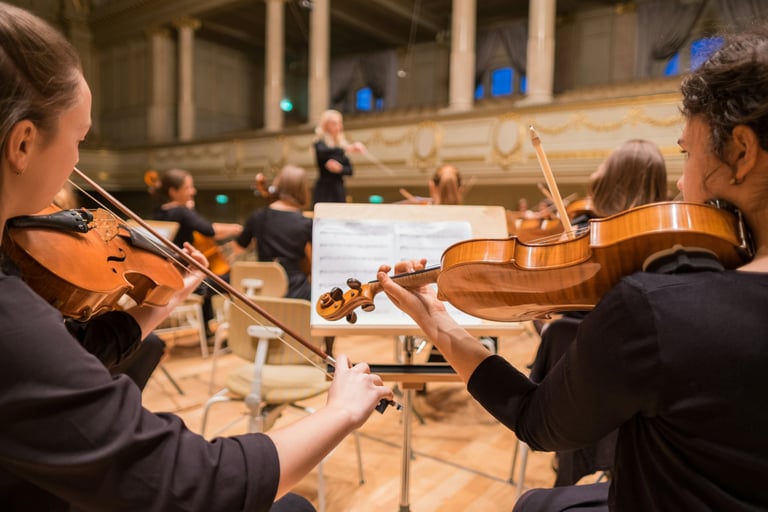

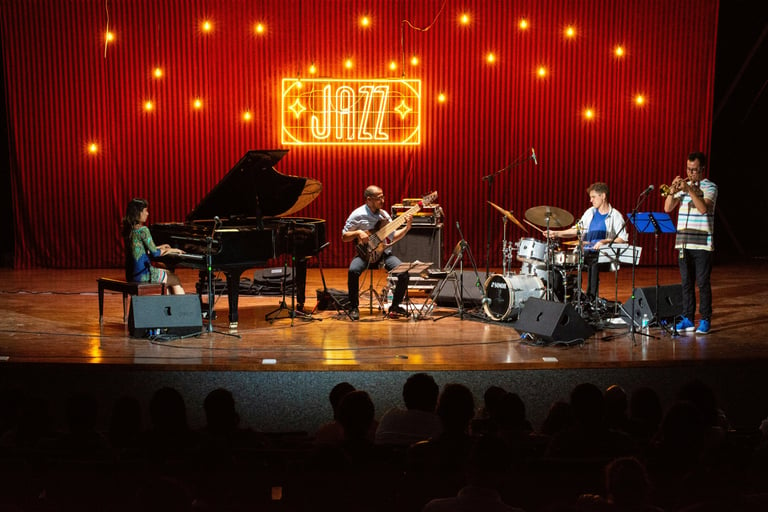

At this stage, children are still developing motor skills and cognitive abilities. Instruments for this age group should ideally be smaller, lighter, and simpler in terms of technique:
Ukulele: Small size, light strings, and simple chord structures make it easy for young children to handle, while introducing basic concepts of melody and rhythm.
Recorder: Lightweight and simple, the recorder teaches breath control and finger dexterity, which are essential skills in wind instruments. Children can focus on learning how to use their lungs and fingers without needing advanced technique.
Hand percussion (tambourine, maracas, xylophone): These instruments are perfect for developing coordination and an understanding of rhythm. They don’t require complex motor skills or coordination, which makes them ideal for children still developing their basic motor functions.
2. Consider Your Age & Physical Capabilities


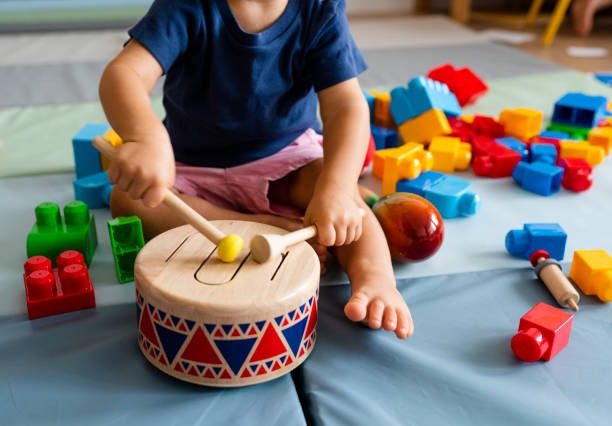

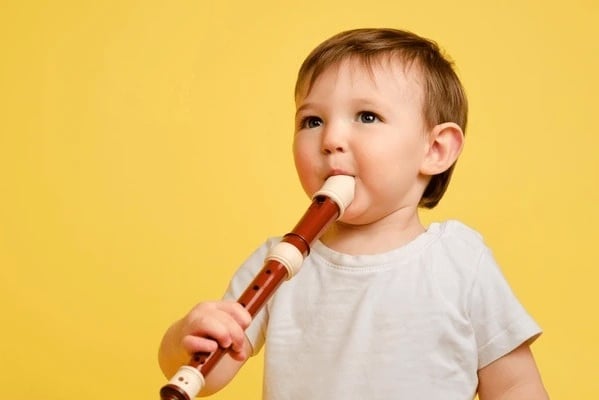

When it comes to choosing the right instrument for a child, age plays a significant role in determining what’s most suitable. As kids grow, their physical, cognitive, and motor skills develop, which makes certain instruments easier to manage at different stages. For younger children, instruments that focus on simple sounds and basic rhythm are ideal as they’re still building strength and coordination. As they get older and gain better control over their movements, they can move on to more challenging instruments that introduce melody and rhythm. By the time they reach their teens, they’re ready for more complex instruments that require advanced techniques and a deeper understanding of music theory. By matching instruments to a child’s developmental stage, we not only ensure smoother learning but also encourage a lifelong love of music.
Young Children (Ages 3-6)
Children (Ages 7-12)


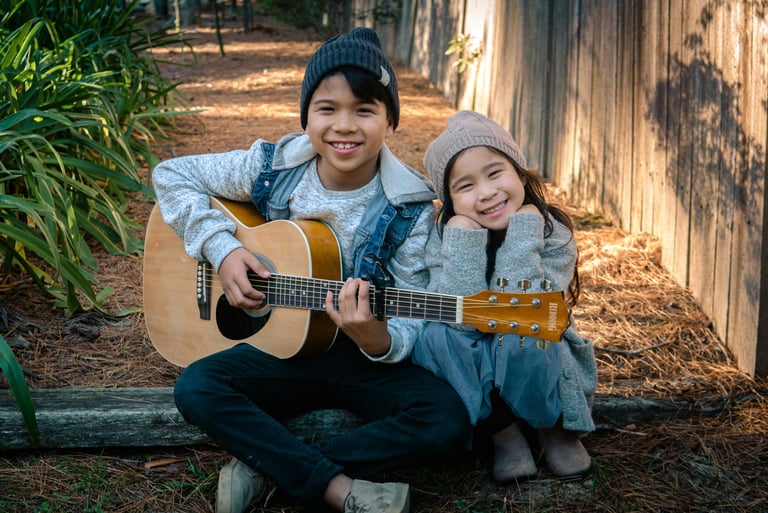

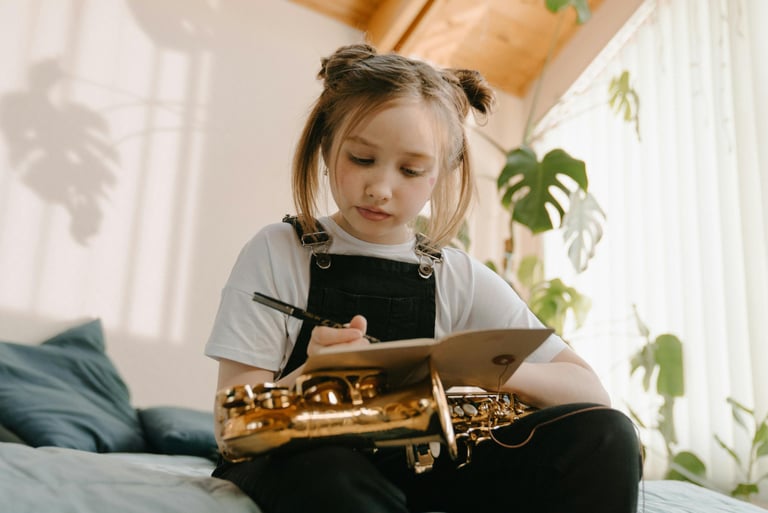

At this age, children have better physical coordination, and their cognitive abilities allow them to take on more complex tasks. They can start playing instruments that require more fine motor control, coordination, and concentration:
Piano: Playing the piano requires the development of both hand and finger coordination, making it a great choice for children who have gained enough fine motor control. Additionally, learning the piano aids in music literacy (reading music and understanding intervals), which enhances cognitive development, including math skills, as studies show.
Violin: This instrument requires precise finger placement and bow control. While it’s challenging, children who have developed a sense of rhythm and finger dexterity can begin learning the violin. It also encourages ear training and intonation, helping children develop a strong sense of pitch.
Acoustic guitar: Playing guitar introduces children to chords and basic music theory, which helps develop their musical understanding. The finger strength required for pressing down strings is appropriate for children whose hands are large enough and dexterous enough to manage the instrument.
Trumpet or Clarinet: Both of these wind instruments require lung capacity and embouchure control, but children of this age are often capable of developing the necessary skills to produce a clear sound. The trumpet, with its brassy tone, and the clarinet, known for its smooth sound, introduce young players to the world of brass and woodwind instruments.
Teenagers & Adults
By adolescence, individuals have developed better physical coordination, lung capacity, and cognitive skills, which allows them to handle more challenging instruments. Teenagers and adults can explore a variety of instruments, including those that demand both mental and physical effort:
Electric guitar or bass: These instruments require good hand coordination, especially for chord changes and strumming. While they can be challenging for beginners, teens and adults usually have the hand strength and dexterity needed. The electric guitar’s versatility makes it a popular choice in various genres, and teens may be more motivated by the styles of music they enjoy.
Drum set: Drumming requires strong coordination between the hands and feet, making it more suited for teens and adults who have developed advanced motor skills. Drums also demand stamina and rhythm, which come with practice and physical development. The high energy required for drumming makes it an exciting choice for older beginners.
Saxophone: This instrument requires significant lung capacity, precise finger coordination, and good embouchure (mouth muscle control). Teens are generally able to handle the physical demands of the saxophone, making it a popular choice for those interested in jazz and other musical genres.
Cello: The cello is large and requires both strength and coordination. Teens and adults are usually better equipped to handle the size and weight of the instrument, along with the technique required for bowing and finger placement on the fingerboard. The cello’s rich tone and versatility in both orchestral and solo performances make it an appealing choice for those who are ready for a challenge.
Overall, as a person matures physically and cognitively, they are capable of taking on instruments that demand greater strength, coordination, and technique. Starting at a younger age can give children a head start in developing the musicality and discipline needed to master more complex instruments as they grow.
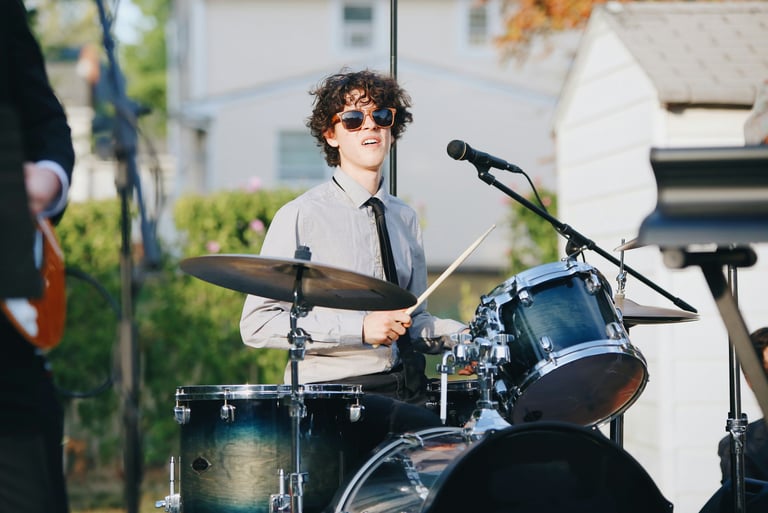

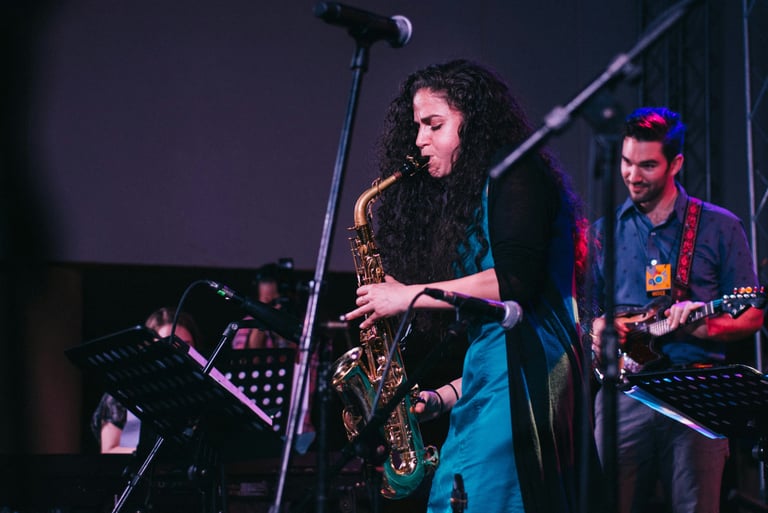

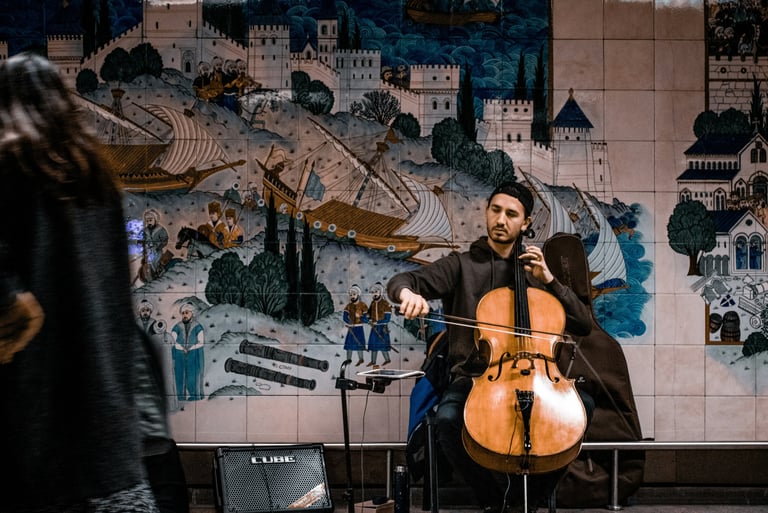

3. Match Your Personality To The Instrument
Your personality can also influence the best instrument for you. Studies show that personality traits correlate with musical preferences; a 2017 study published in Psychology of Music found that extroverted individuals tend to prefer energetic instruments like drums and electric guitar, while introverts gravitate towards softer instruments like piano and flute (Greenberg et al., 2017).
Outgoing and Energetic: Drums, trumpet, electric guitar – These instruments are loud and expressive, perfect for those who love attention and excitement.
Analytical and Methodical: Piano, violin, cello – These require patience and a structured approach to learning.
Creative and Expressive: Saxophone, acoustic guitar, synthesizers – Ideal for improvisation and songwriting.
Social and Collaborative: Trombone, bass guitar, clarinet – These instruments shine in ensembles and bands.
Independent and Reflective: Flute, classical guitar, solo piano – Great for introspective playing and solo performances.
Choosing an instrument that complements your personality will make the learning process more enjoyable and fulfilling.
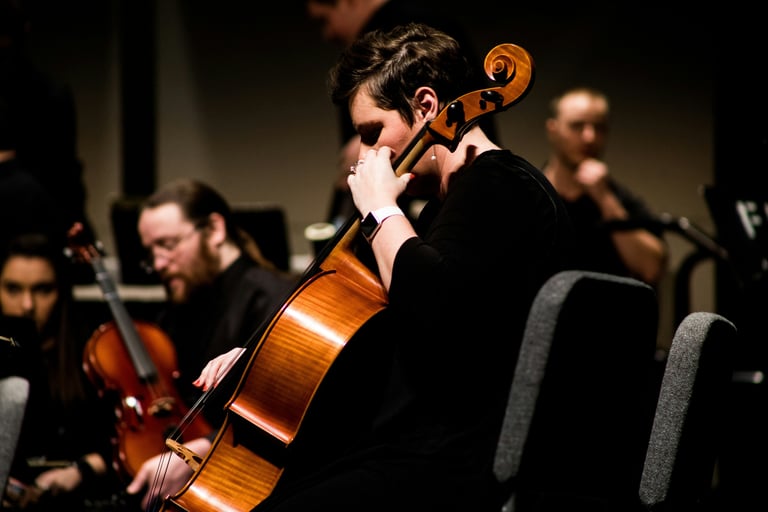

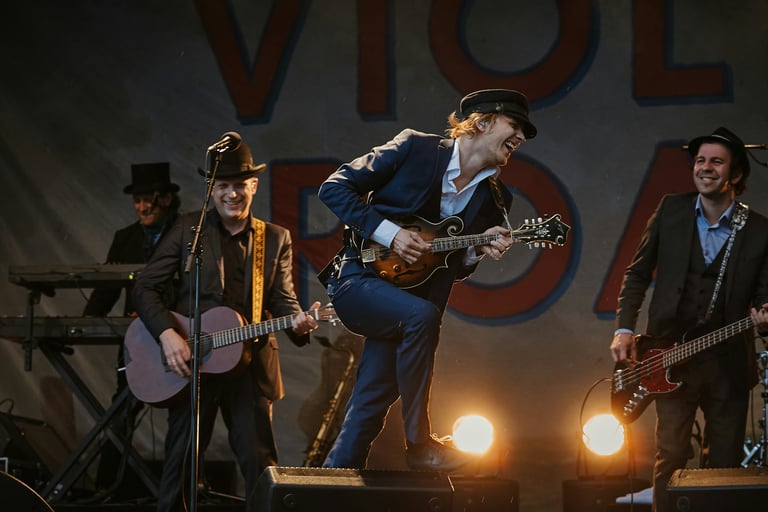

4. Evaluate Practical Factors
Before finalising your decision, consider practical aspects such as budget, space, and portability.
Budget
Musical instruments vary greatly in price. A report by Statista (2022) revealed that the average beginner guitar costs around $200, while a quality violin can range from $500 to $2,000. While some instruments, like recorders or ukuleles, are affordable, others, such as grand pianos or drum kits, can be expensive. Consider renting or purchasing a used instrument if budget is a concern.
Space and Portability
Some instruments require significant space. A drum set or grand piano needs a dedicated area, while a flute or violin is compact and easy to store. If you travel often, a portable instrument like a harmonica or acoustic guitar might be more convenient.
Noise Level
Consider your living situation. Electric instruments like keyboards and electric guitars can be played with headphones, while acoustic drums and brass instruments can be loud. If noise is an issue, digital options or soundproofing measures might be necessary.
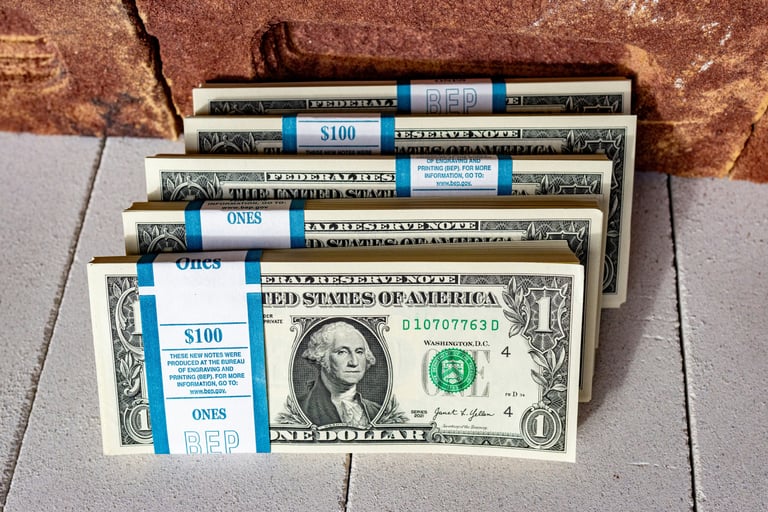

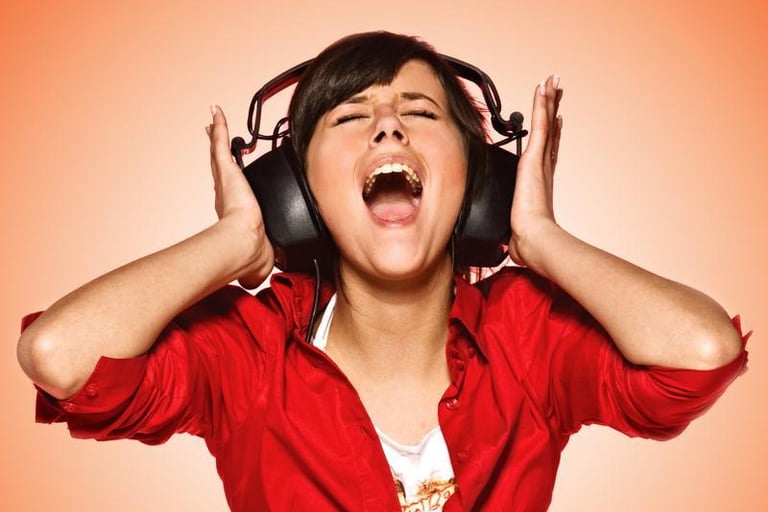

5. Trial & Exploration
If you're unsure which instrument to choose, don’t worry—you don’t have to commit right away! Many music stores allow you to try out instruments before buying, and some even offer rentals. Music academies and institutes provide beginner lessons for various instruments. Many schools and colleges have music clubs where you can experiment with different instruments without a big investment. If you prefer learning at your own pace, online tutorials and YouTube lessons from both local and international teachers make it easy to get started from home. Take your time to explore and find the perfect instrument for your musical journey!
Conclusion
Choosing the right musical instrument is a personal decision that should align with your musical interests, age, and personality. By evaluating what excites you, considering practical aspects, and exploring different options, you can find an instrument that will bring you joy and creativity for years to come.
Statistical data and research studies confirm that matching an instrument to your personality and interests increases motivation and long-term success (Lehmann & Davidson, 2019). The most important factor is to choose something you’ll enjoy playing—because the best instrument for you is the one that keeps you inspired and engaged in your musical journey.
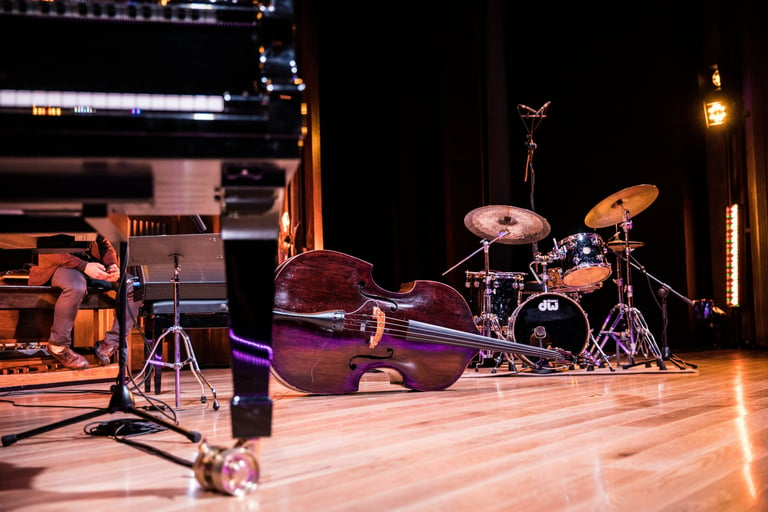

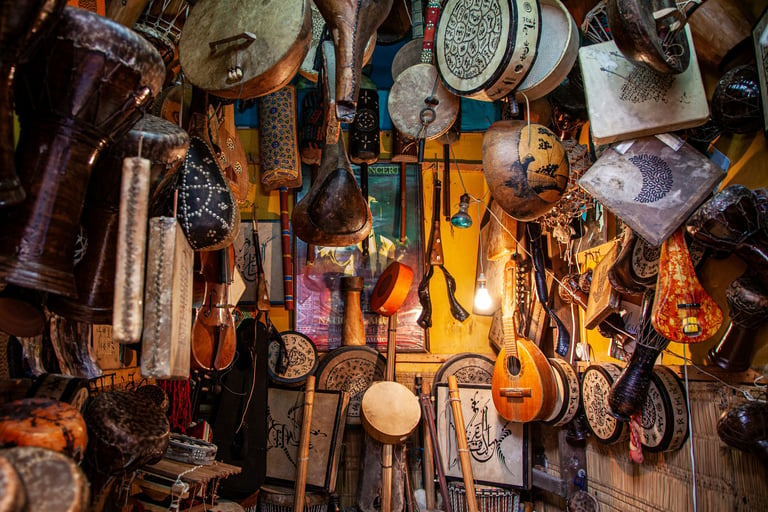

References
Brown, L., & Patel, R. (2020). Neuroscience and Music Learning. National Institute of Health.
Greenberg, D., et al. (2017). Personality Traits and Musical Preferences. Psychology of Music.
Hallam, S. (2018). The Impact of Instrumental Music Training on Math Skills. Educational Psychology Journal.
Lehmann, A., & Davidson, J. (2019). The Psychology of Musical Ability. Cambridge University Press.
Smith, J., et al. (2019). Motivation and Instrument Choice. Journal of Research in Music Education.
Statista. (2022). Global Music Instrument Market Report.
Share this on:
About The Author


Padmavathy Divakaran is a distinguished pianist, arranger, and music educator, currently serving as the Director of Aum Piano Studio. Formerly the representative for MTB Exams in Tamil Nadu and Karnataka - a globally recognised music education board based in the UK - she has consistently championed excellence in music education. Padmavathy holds a BA (Honours) in Music from Middlesex University, London, and a Diploma in Higher Education – Music from KM College of Music and Technology, Chennai. Her outstanding talent has been recognised through multiple scholarships and awards, including those presented by Dr. A.R. Rahman. As a performer, she has showcased her versatility across classical and contemporary genres, playing with orchestras in both London and Chennai. She was a core member of the Roliwood Seaboard Ensemble, playing a key role in the global launch of the ROLI Seaboard. Her artistry has earned her the honour of performing at prestigious events, including a special performance for Prince William, Simon Cowell, and other notable personalities at The Founders Forum in the UK — a testament to her global reach and artistic impact.